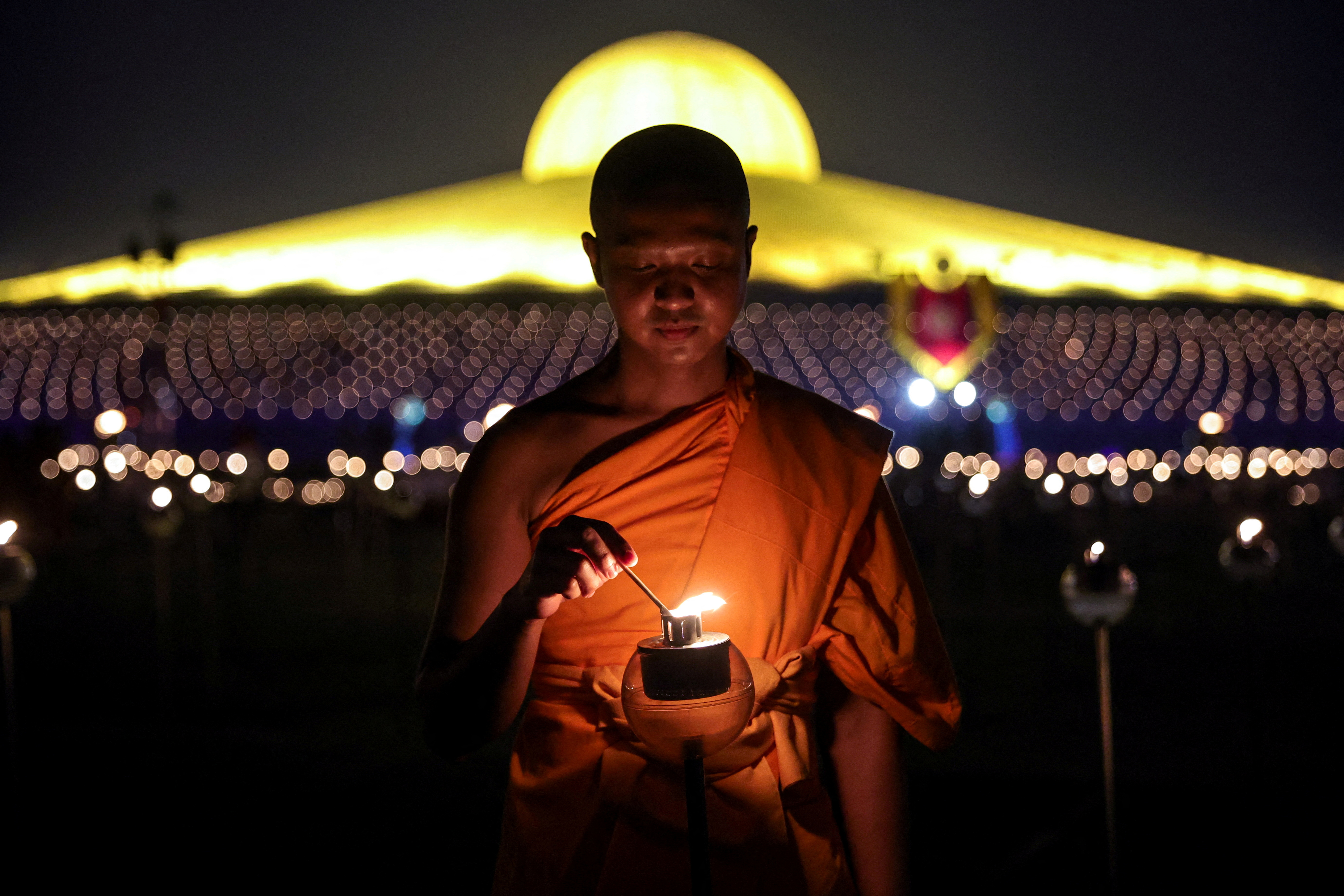History and Significance
The historical event that Makha Bucha Day commemorates took place nine months after the enlightenment of the Buddha. It is said that on this day, without any prior arrangement, 1,250 arahants (enlightened monks) came to pay homage to the Buddha at Veluvana Temple in Rajagaha, India. The Buddha then delivered the Ovadha Patimokkha, a set of principles for his disciples to follow, which became the basis of the Buddhist monastic code.
Celebrations in Thailand
In Thailand, Makha Bucha Day is a public holiday, and Buddhists celebrate it with various religious activities. One of the most significant rituals is the candlelight procession called wian tian, where participants walk clockwise around a temple’s main hall three times, holding flowers, incense, and a lighted candle. This ritual symbolizes the Triple Gem of Buddhism: the Buddha, the Dharma (his teachings), and the Sangha (the monastic community).
Another important tradition is the practice of giving alms to monks. Devout Buddhists wake up early to prepare food and offerings to offer to monks in the morning. This act of generosity is believed to bring merit and is an essential part of Makha Bucha Day observances.
5 Things to Know About Makha Bucha Day
- No Alcohol Sales: As Makha Bucha Day is a religious holiday, the sale of alcohol is prohibited by law in Thailand. This rule applies to both shops and bars, so it’s important to plan accordingly if you’re in the country during this time.
- Merit-Making Opportunities: Makha Bucha Day is considered an auspicious day for making merit. In addition to giving alms to monks, Buddhists often participate in other merit-making activities such as meditation, chanting, and listening to sermons.
- Observance by Monks: On Makha Bucha Day, monks often convene at temples for special ceremonies and teachings. Lay Buddhists may join these ceremonies to pay their respects and receive blessings from the monks.
- Importance of the Number 1,250: The number 1,250, representing the number of arahants who gathered spontaneously to see the Buddha, is significant in Buddhism. It is believed to symbolize unity and harmony among the Buddha’s followers.
- Global Observance: While Makha Bucha Day is most widely celebrated in Thailand, it is also observed in other countries with significant Buddhist populations, such as Cambodia, Laos, and Myanmar. Each country may have its own unique customs and traditions associated with the holiday.
Bank Closures
Since Makha Bucha Day falls on Saturday, February 24, banks in Thailand will be closed on Monday, February 26, as a substitution for the holiday. This closure is to allow bank employees to observe the holiday and participate in religious activities.
Tips for Expats
For expatriates living in Thailand, Makha Bucha Day is an excellent opportunity to experience the country’s rich Buddhist culture. Here are some tips to respectfully observe the holiday:
- Dress modestly: When visiting temples or participating in religious ceremonies, dress appropriately. Avoid wearing shorts, sleeveless shirts, or revealing clothing.
- Be mindful of your actions: Remember that Makha Bucha Day is a solemn religious observance. Avoid loud or disruptive behavior, especially around temples or during ceremonies.
- Participate respectfully: If you choose to participate in Makha Bucha Day activities, follow the lead of locals and observe the customs and rituals with respect and reverence.
Makha Bucha Day is a time of spiritual significance for Buddhists and a unique cultural experience for visitors to Thailand. By observing the customs and traditions respectfully, expatriates can gain a deeper understanding of the country’s spiritual heritage.



